Looks and Life: A summary of the study
23 August 2019
Looks and Life: A summary of the study
What we wanted to learn
We were interested in how people with a health condition that affects their appearance deal with difficult thoughts and feelings about their appearance. We know from previous research that some people avoid activities that they expect will bring up difficult thoughts and feelings, and some spend a lot of time and energy covering, concealing and focusing on their appearance. We wanted to learn more about two mental tendencies: (1) a desire to get rid of or avoid difficult thoughts and feelings (called ‘experiential avoidance), and (2) getting caught up with difficult thoughts (called ‘cognitive fusion’). Specifically, we wanted to know whether these two tendencies might explain why people with conditions that affect their appearance are more or less likely to (a) avoid stressful appearance-related activities, and (b) to cover, conceal and focus on their appearance.
What we did
To do this, we asked charities and organisations from the Appearance Collective to help us recruit participants across a wide range of appearance-affecting conditions (a breakdown by condition type is given below). Thanks to these organisations, we surveyed 220 adults, aged 18-75, just under 80% of whom were female. Participants completed demographic questions, a series of validated psychological questionnaires, and gave details about how their condition affects their appearance. We ran statistical analyses called Mediation analyses, to find out how well (1) experiential avoidance and (2) cognitive fusion statistically explained participants’ tendency to (a) avoid stressful appearance-related situations and (b) cover, conceal and focus on their appearance. In the analyses, we took account of participants’ age, gender, how visible they perceived their different appearance to be to others, and whether their condition was acquired or from birth.
What we found
We found that participants’ level of (1) experiential avoidance (a tendency to try and get rid of or avoid difficult thoughts and feelings) did partly explain their tendency to (a) avoid stressful appearance-related situations. The more experientially avoidant they were, the more likely they were to avoid stressful situations. Experiential avoidance didn’t, though, explain participants’ tendency to (b) cover, conceal and focus on appearance. On the other hand, participants’ level of (2) cognitive fusion (getting caught up in thoughts) explained both (a) avoiding stressful situations and (b) cover, concealing and focusing on appearance. The more participants were caught up in thoughts, the more they’d avoid stressful situations, and the more they’d cover, conceal and focus on their appearance.
What this means
We now know that these two mental tendencies are likely to play a role in how people cope with difficult thoughts and feelings about their appearance. Many types of psychological therapy (like traditional cognitive behavioural therapy) try to help people manage distress by teaching them to change their thinking patterns from less rational to more rational. What the findings of the study suggest is that they may be another way: Learning to just observe thoughts as thoughts rather than facts (‘cognitive defusion’) and learning to open up to and tolerate difficult thoughts and feelings (‘experiential acceptance’), without trying to change those internal experiences, may help people with appearance-affecting conditions engage more in meaningful activities that they may otherwise avoid. An approach called Acceptance and Commitment Therapy (or ‘ACT’) focuses on developing cognitive defusion and experiential acceptance, and we at CAR are currently developing a self-help programme based on ACT that we would like to test in the near future.
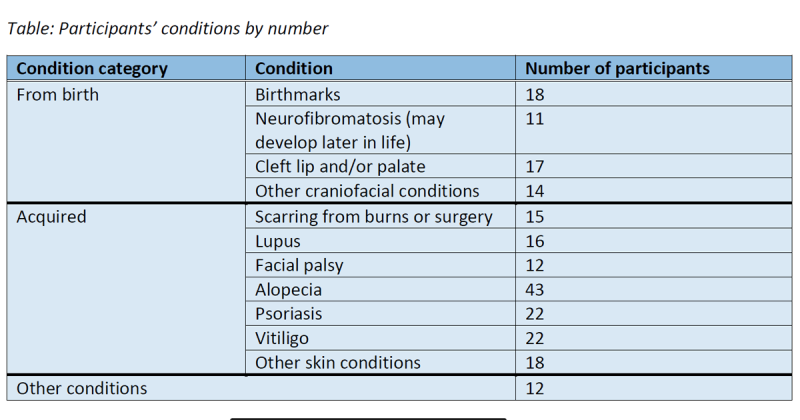
Filter News
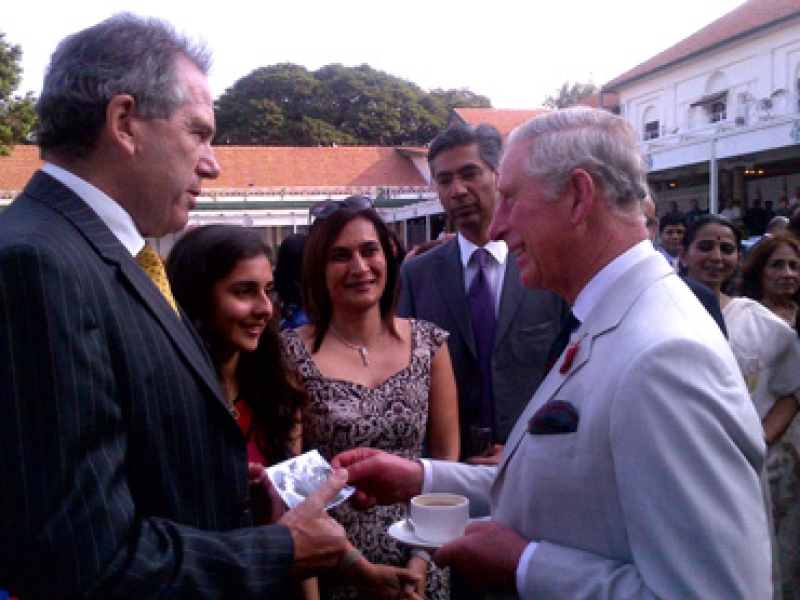
Nigel’s story - Normal is as normal does
Nigel lived a normal life until age 47. The next 20 years took him from NF1 to NF2 to Schwannomatosis to mosaic NF2
Read More
Meet Helen
Helen is the Specialist NF Advisor for Devon and Cornwall and is based at Derriford Hospital in Plymouth.
Read More
Meet Rebecca
Specialist NF Nurse Rebecca is Lead Nurse, NTUK and is based at the Genetics Institute at the Centre for Life in Newcastle
Read More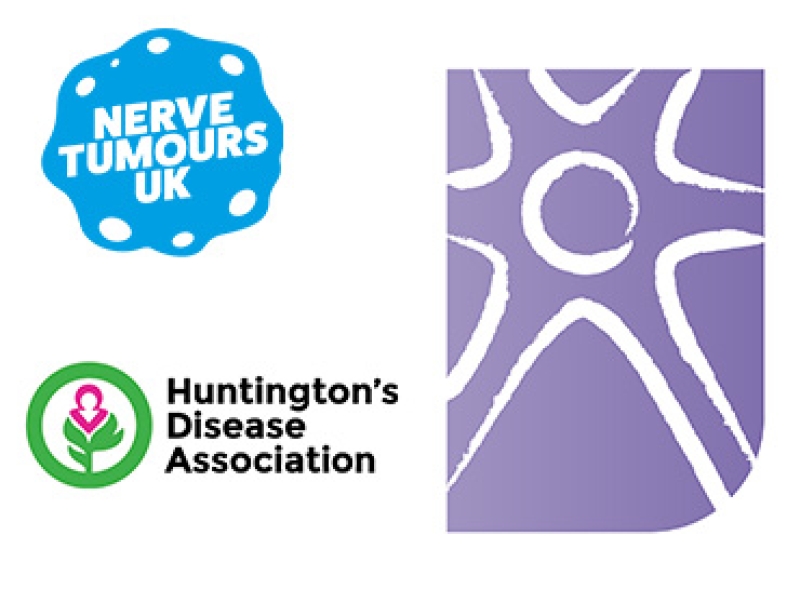
World Mental Health Day 2023
NTUK (as part of the Neurological Alliance) has signed a joint letter aimed at improving access to mental health services
Read More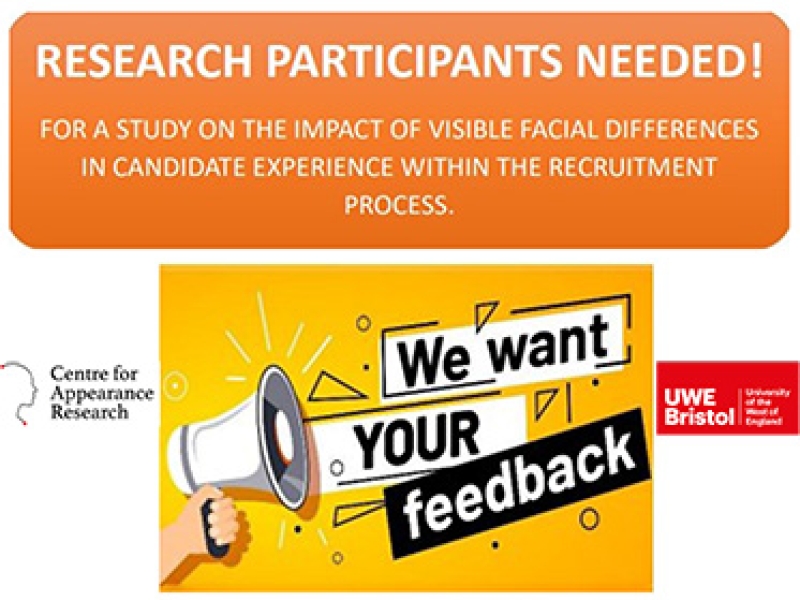
CAR Research visible difference experiences during recruitment
Research participants required, find out more and take part
Read More_800_600_s_c1.png)
Oliver Bromley’s NF Story
Oliver, who was asked to leave a restaurant due to his appearance, chooses to turn discrimination into a call for awareness
Read More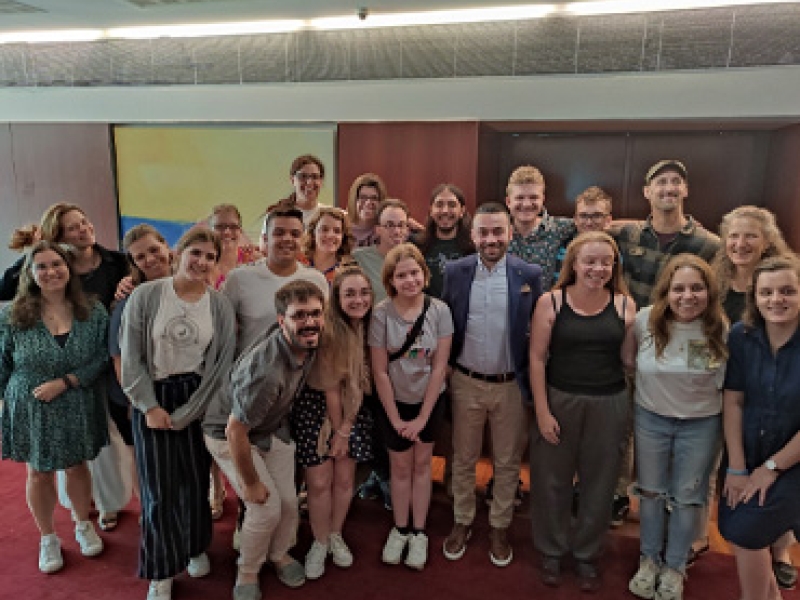
NF Academy 2023 - Ella’s Blog
Ella, who has NF1, attended the week-long 2023 NF Academy in Portugal, meeting young adults with NF from all over Europe
Read More
University of Manchester Research
Read about the latest PHD research, involving Nerve Tumours UK, at the University of Manchester
Read More
New Research Study for Children and Young People with NF1
Find out more about the study and how you can participate here
Read More
